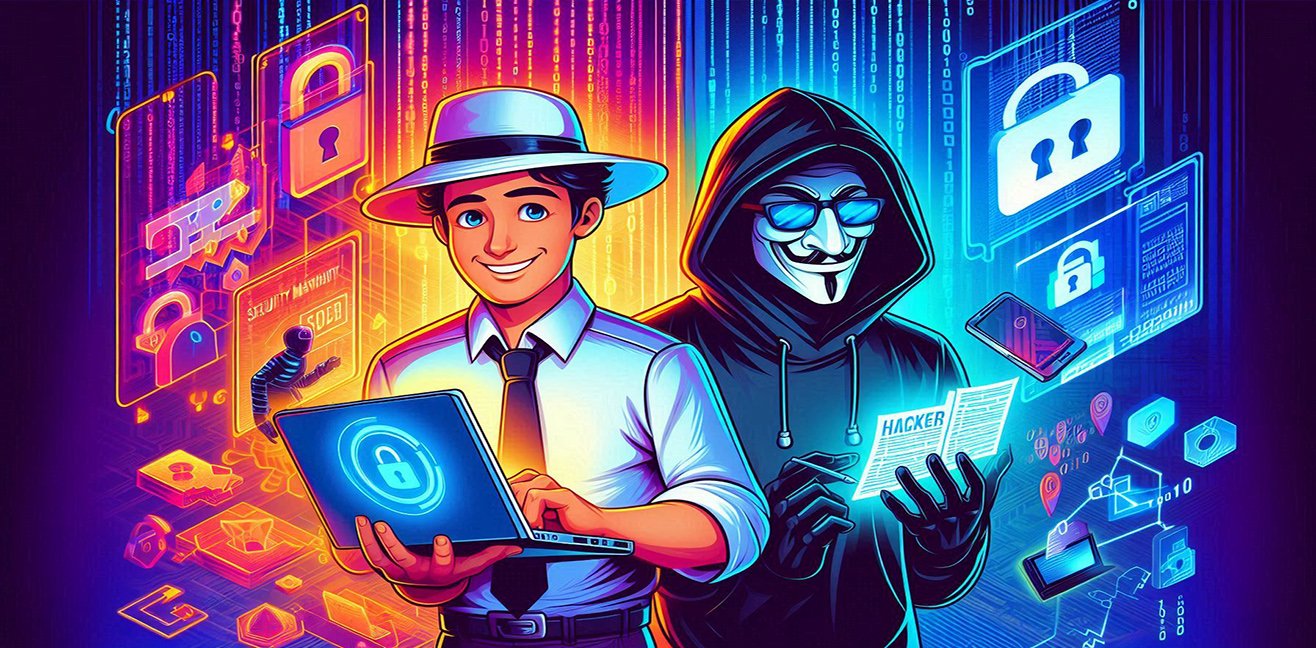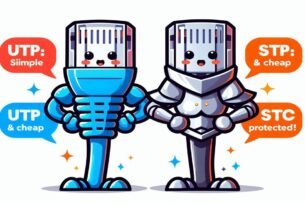One day, a friend might come up to you and say:
“Dude, I’m gonna become a hacker!”
And suddenly, you hear Matrix music playing in your head, green code starts dripping down, and you picture Neo wearing sunglasses…
But wait!
Being a hacker isn’t exactly about “hacking into the Pentagon with three keystrokes” like in the movies.
In fact, hacking doesn’t just mean “breaking into systems without permission” either!
Today, we’re diving into computer security, the concept of ethical hacking, and the famous digital “holy text” known as the Hacker Manifesto.
We’ll laugh, we’ll learn, and we’ll take a realistic tour of the deep waters of the internet.
Ready? Grab your modem cable tight—here we go!
🔐 What Is a Hacker, Really? (Spoiler: Movies Lie.)
At its core, the word hacker simply means “someone who deeply understands a system and enjoys exploring it.”
Basically, hackers are people who learn the “language” of a system and love pushing its limits.
But in society, we often see three main types of hackers:
- White Hat Hacker (The Good Guys):
The ethical hacker.
Finds vulnerabilities, reports them, and helps improve security.
Think of them as “Cyber Security Doctors.” - Black Hat Hacker (The Villains):
The malicious ones.
Usually motivated by money, fame, or pure chaos.
They break into systems illegally, steal data, or cause damage. - Grey Hat Hacker (The Rebels):
Somewhere in between.
They might hack systems without permission, sometimes for curiosity, sometimes for good.
Neither angel nor devil—more like digital Robin Hoods.
In short:
White Hat = Security Specialist
Black Hat = Cybercriminal
Grey Hat = Somewhere in between, walking the line.
📜 The Hacker Manifesto: The Digital World’s Holy Scripture
In 1986, a hacker known as The Mentor published a piece called “The Conscience of a Hacker.”
This text became famous as the Hacker Manifesto and remains a cornerstone of hacker culture.
So, what does this legendary manifesto say?
In summary, it says:
“I am a hacker because I love to learn.
To me, computers mean freedom.
I don’t judge people by race, money, or clothes.
In my world, only knowledge matters.”
And this iconic line:
“We are the explorers of the digital frontier.”
Hackers, at their core, are:
- Curious
- Analytical
- Passionate about knowledge
- Free-spirited thinkers
Of course, not everyone uses this mindset for good—which is why ethics matter.
🦸♂️ What Is Ethical Hacking? Can You Really Hack “For Good”?
An ethical hacker is someone who:
- Conducts authorized penetration testing
- Identifies security vulnerabilities and reports them
- Helps companies fix weak points in their systems
Think of them as digital bodyguards for organizations.
Some might say:
“A hacker is a hacker—ethics don’t matter!”
But that’s not true.
Ethical hacking is now a recognized, legitimate profession.
Many companies pay top dollar to hire ethical hackers and test their security.
Yep, those “troublemaker kids messing with computers” now wear suits and get paychecks!
💡 Computer Security 101 (With A Side of Humor)
Before we dive into too much theory, here are some golden rules:
- 1. Don’t use “123456” as your password!
(Yes, millions of people still do…) - 2. Don’t click every email you get!
If an email says “You won $100,000, click here!” and you actually click it… well, good luck. - 3. Don’t delay updates!
Updates aren’t just about new emojis—many security flaws are fixed through updates. - 4. Don’t be afraid to use VPNs!
Especially on public Wi-Fi, VPNs are your invisibility cloaks. - 5. Beware of Social Engineering!
If a hacker tricks you into giving up your password yourself, no strong password in the world can save you.
Remember: Most hackers’ favorite weapon isn’t their keyboard—it’s their charm.
🎯 Final Thoughts: Is Hacking Really That Evil?
Computer security isn’t just about software and firewalls.
It’s also about curiosity, questioning, and sharing knowledge.
Hackers aren’t always the villains.
Some work every day to make the world safer—writing code, fixing vulnerabilities.
Sure, some use their skills for bad purposes, but here’s the truth:
It all depends on how you use knowledge.
You can study ethical hacking, improve your cybersecurity skills,
and maybe someday proudly say:
“I’m now a white hat wandering the digital world!”
And who knows?
Maybe one day you will write your own hacker manifesto…




